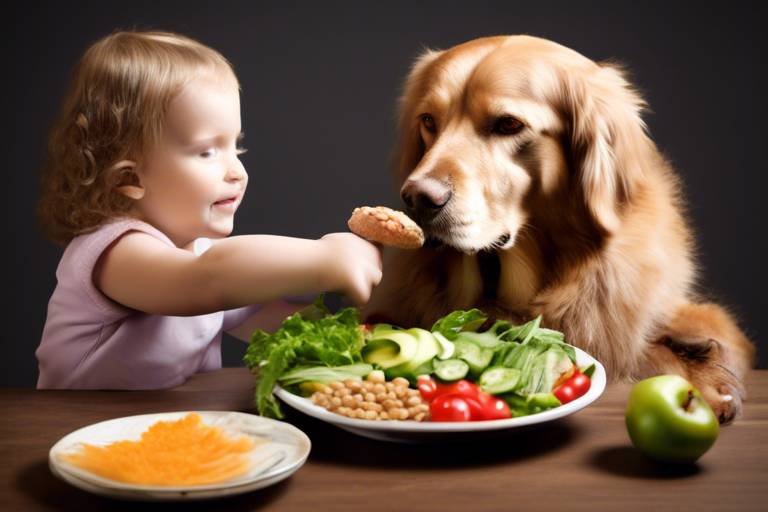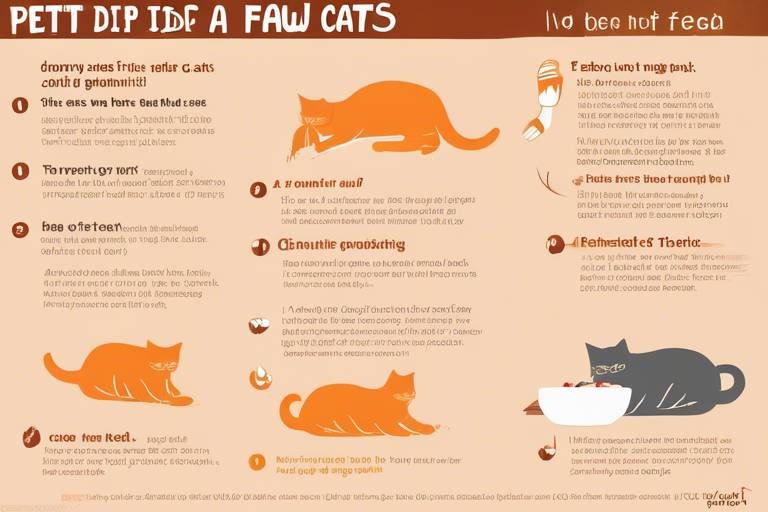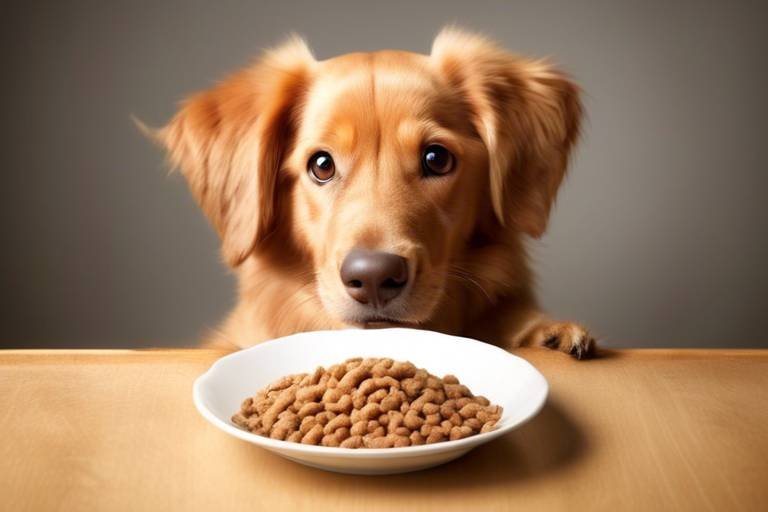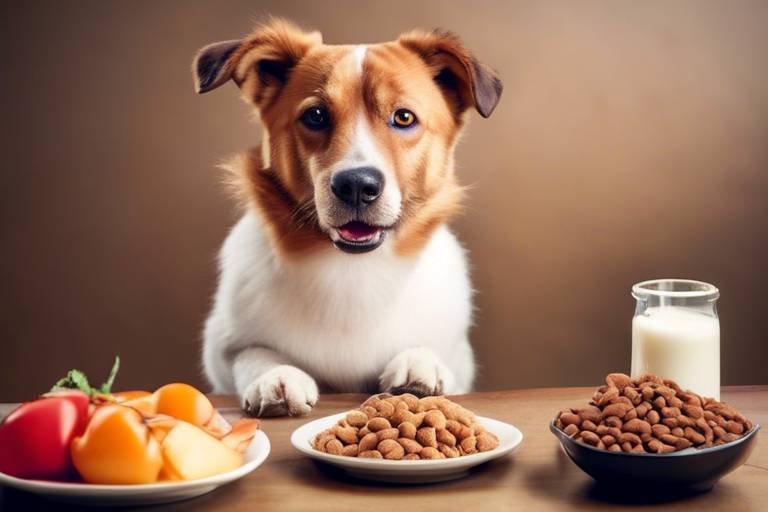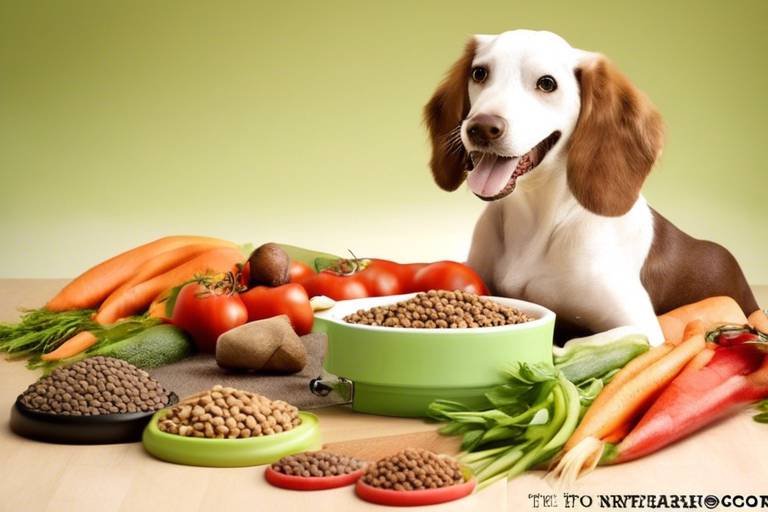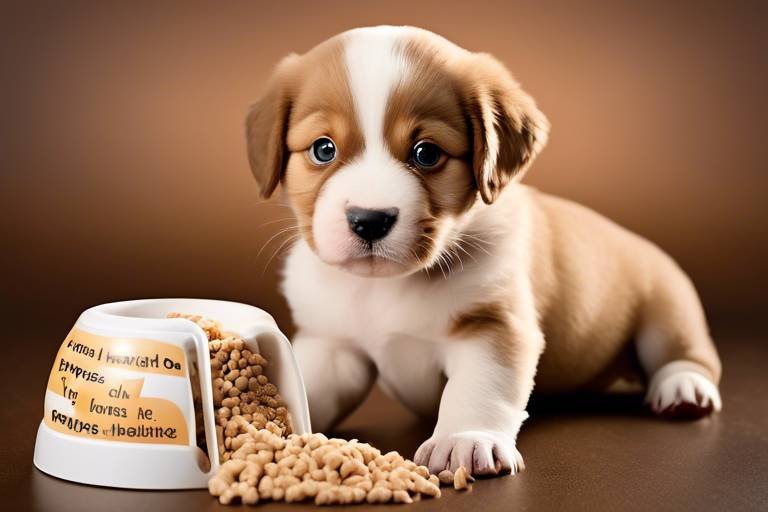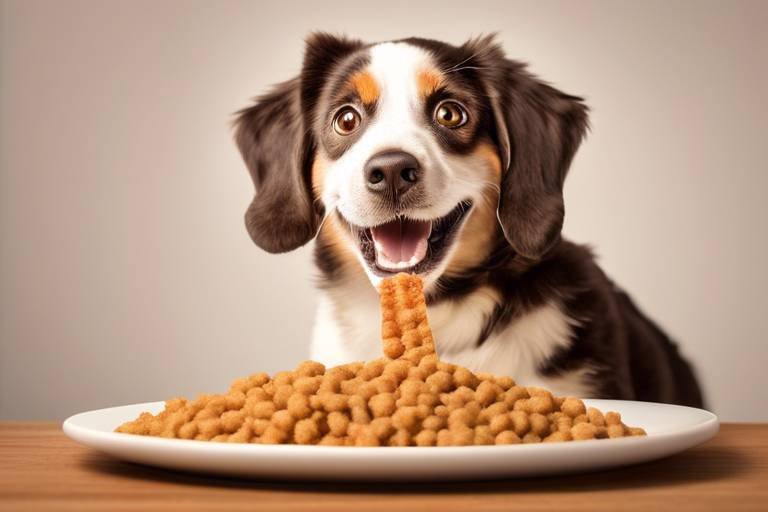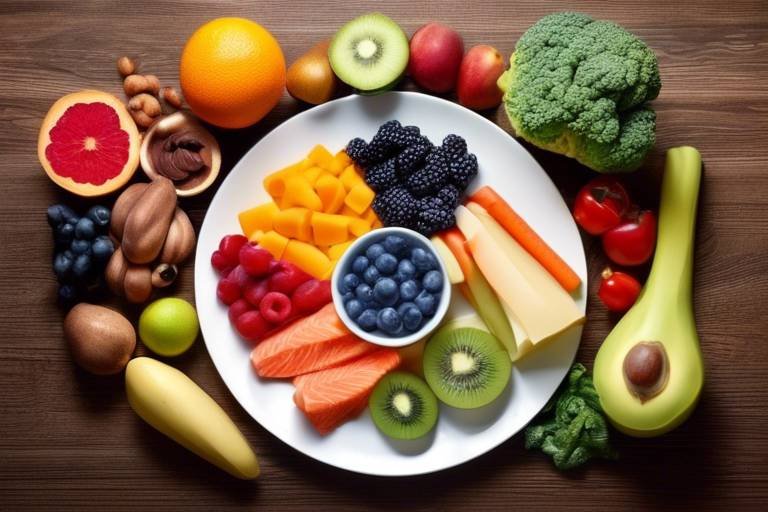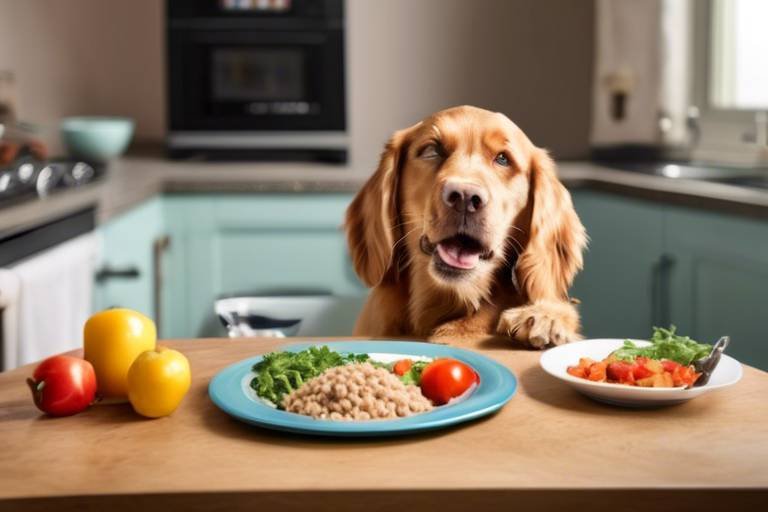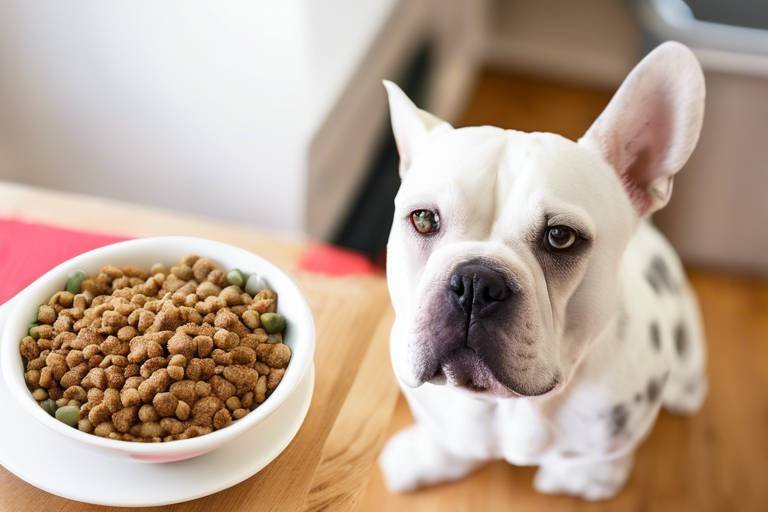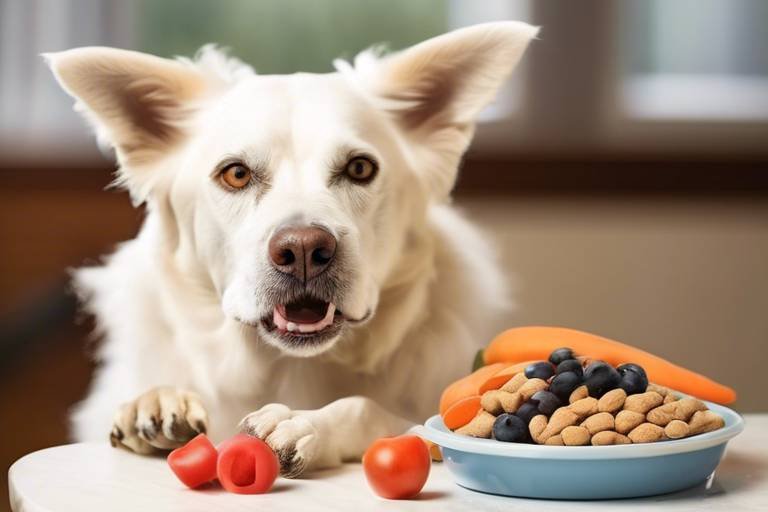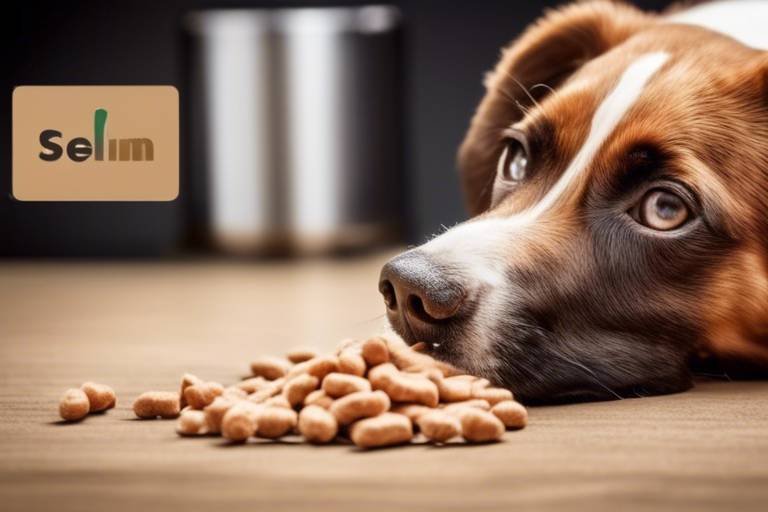The Role of Nutrition in Pet Longevity
When it comes to our beloved furry friends, we often think of cuddles, playtime, and the joy they bring into our lives. But have you ever paused to consider how nutrition plays a pivotal role in their overall health and longevity? Just like humans, pets require a balanced diet to thrive and live their best lives. In this article, we’ll explore how proper nutrition can significantly impact the lifespan of your pets, ensuring that they not only live longer but also enjoy a vibrant quality of life.
Imagine your pet as a finely tuned machine—each part relies on specific fuel to function optimally. When you provide them with the right balance of nutrients, you’re essentially giving them the best chance at a long, healthy life. So, what are these essential nutrients, and how do they contribute to your pet's longevity? Let’s dive deeper into the world of pet nutrition!
Understanding the vital nutrients that pets require for optimal health can significantly impact their lifespan. Just like us, pets need a variety of nutrients to maintain their energy levels, support their immune systems, and keep their organs functioning properly. The key nutrients include:
- Proteins: These are the building blocks of your pet's body, essential for growth, repair, and overall health.
- Fats: They provide energy and help absorb certain vitamins, playing a crucial role in maintaining healthy skin and a shiny coat.
- Carbohydrates: While not always essential, they can provide a quick source of energy and aid in digestive health.
- Vitamins and Minerals: These micronutrients are vital for various bodily functions, including bone health, immune function, and metabolic processes.
By ensuring that your pet's diet is rich in these essential nutrients, you’re not just feeding them; you're investing in their long-term health and happiness. A well-nourished pet is more likely to be active, playful, and free from many common health issues.
When it comes to pet food, the debate between commercial and homemade diets is ongoing. Each option has its pros and cons, and understanding these can help you make an informed decision that suits your pet's needs. Commercial pet foods are often convenient and formulated to meet specific nutritional standards, but they can also contain fillers and additives that might not be beneficial. On the other hand, homemade diets allow for complete control over ingredients, ensuring that your pet receives the best quality food tailored to their unique needs.
Commercial pet food production is regulated to ensure that the products meet necessary health standards. These regulations are crucial because they help maintain the quality and safety of the food your pet consumes. However, not all commercial pet foods are created equal. Some brands prioritize quality ingredients, while others may cut corners. Therefore, it’s essential to do your research and choose brands that comply with these regulations and prioritize your pet's health.
High-quality ingredients in commercial pet foods can make a significant difference in your pet’s health and longevity. Ingredients sourced from reputable suppliers and processed with care can provide better nutritional value. When selecting pet food, look for products that list whole meats, vegetables, and grains as primary ingredients, avoiding those with vague terms like "meat meal" or "by-products."
Learning to read and understand pet food labels is vital for pet owners. A well-informed pet parent can identify beneficial ingredients and avoid harmful additives. Look for clear labeling that details the source of proteins, the presence of whole grains, and the absence of artificial preservatives. Paying attention to these details can help you choose a diet that supports your pet's longevity.
Exploring the advantages of homemade diets for pets reveals that personalized meal plans can cater to specific health needs, potentially enhancing a pet's quality of life and lifespan. By preparing meals at home, you have complete control over what goes into your pet's food, allowing you to avoid allergens and tailor diets to address specific health concerns.
Different life stages require tailored nutritional approaches. For instance, puppies and kittens have different needs compared to adult and senior pets. Understanding these differences is crucial for promoting optimal health throughout their lives.
As pets age, their nutritional requirements change. Senior pets may require diets that are lower in calories but higher in fiber to support digestion. Additionally, they might benefit from supplements that support joint health and cognitive function. By adjusting their diet accordingly, you can help maintain their health and vitality, thereby extending their lifespan.
Proper nutrition during the early stages of life is crucial for growth and development. Puppies and kittens need diets rich in proteins and essential fatty acids to support their rapid growth and energy levels. Ensuring they receive the right balance of nutrients during these formative years sets the foundation for a healthy life ahead.
Q: How can I tell if my pet is getting the right nutrition?
A: Look for signs of good health, such as a shiny coat, healthy weight, and energy levels appropriate for their age. Regular vet check-ups can also help assess their nutritional needs.
Q: Is it safe to switch my pet's diet suddenly?
A: It's best to transition gradually over a week to avoid digestive upset. Mix the new food with the old food, gradually increasing the new food's proportion.
Q: Can I feed my pet human food?
A: Some human foods are safe for pets, while others can be harmful. Always consult your veterinarian before introducing new foods to their diet.

Essential Nutrients for Pets
When it comes to your furry friends, nutrition is the cornerstone of their health and longevity. Just like us, pets require a balanced diet filled with essential nutrients to thrive. But what exactly are these nutrients, and why are they so crucial? Let's break it down!
First up, we have proteins. These are the building blocks of life, essential for growth, maintenance, and repair of tissues. Proteins are made up of amino acids, some of which are vital and must come from your pet's diet. Dogs and cats, for instance, need high-quality protein sources like chicken, beef, and fish to keep their muscles strong and their immune systems functioning optimally.
Next on the list are fats. Often misunderstood, fats are not the enemy! In fact, they are a crucial energy source and help with the absorption of fat-soluble vitamins. Omega-3 and Omega-6 fatty acids, found in fish oil and flaxseed, can do wonders for your pet's skin and coat health. Just imagine how shiny and healthy your pet's fur will look with the right balance of fats!
Now, let’s talk about carbohydrates. While pets don’t require as many carbs as humans, they still play an important role in providing energy and supporting gut health. Whole grains, vegetables, and fruits can offer necessary fiber and nutrients. Think of carbohydrates as the fuel that keeps your pet's engine running smoothly!
Of course, we can’t forget about vitamins and minerals. These micronutrients are vital for various bodily functions. For example, vitamins A, D, E, and K are essential for vision, bone health, and immune function. Minerals like calcium and phosphorus support strong bones and teeth. A well-rounded diet will provide these nutrients in the right amounts.
To summarize, here’s a quick table that outlines the essential nutrients and their benefits:
| Nutrient | Function | Sources |
|---|---|---|
| Proteins | Builds and repairs tissues | Meat, fish, eggs |
| Fats | Energy source, supports skin and coat health | Fish oil, flaxseed, chicken fat |
| Carbohydrates | Energy, supports digestive health | Whole grains, vegetables, fruits |
| Vitamins | Supports various bodily functions | Fruits, vegetables, supplements |
| Minerals | Bone health, metabolic functions | Meat, dairy, leafy greens |
In conclusion, ensuring your pet receives a well-balanced diet rich in these essential nutrients is paramount for their overall health and longevity. Just like we wouldn’t fuel a sports car with regular gas, we shouldn’t skimp on our pets' nutrition. After all, a happy pet is a healthy pet!
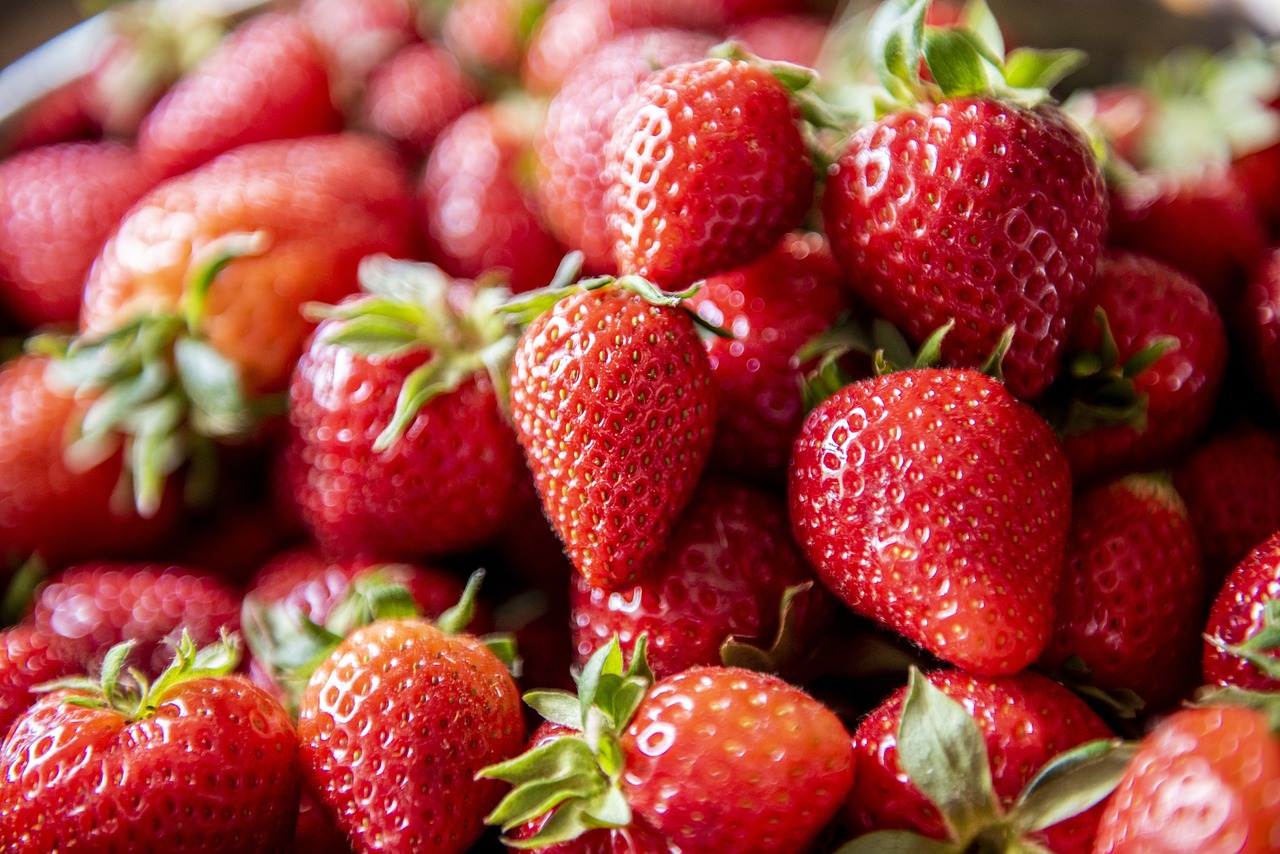
Commercial vs. Homemade Diets
When it comes to feeding our beloved pets, the debate between commercial and homemade diets is as heated as a summer BBQ. Each option has its own set of advantages and disadvantages, and understanding these can be the key to unlocking a longer, healthier life for your furry friends. So, which path should you take? Let's dive into the pros and cons of both diets to help you make an informed decision.
Starting with commercial diets, they offer convenience that is hard to beat. Just grab a bag or a can, and you're good to go! However, not all commercial pet foods are created equal. Some are packed with high-quality ingredients and formulated to meet the specific nutritional needs of pets. On the flip side, others might contain fillers and artificial additives that do more harm than good. It's crucial to do your homework and choose brands that prioritize quality ingredients and adhere to strict nutritional guidelines.
Now, let's talk about homemade diets. Preparing meals at home allows for a level of customization that commercial diets simply can't match. You can tailor your pet's meals to meet their unique health needs, preferences, and sensitivities. For example, if your dog has a grain allergy, you can easily whip up a grain-free recipe using fresh, whole ingredients. However, crafting a balanced homemade diet requires a solid understanding of pet nutrition. If you're not careful, you might miss out on essential nutrients, which could lead to health issues over time.
To give you a clearer picture of the differences, here’s a quick comparison:
| Aspect | Commercial Diets | Homemade Diets |
|---|---|---|
| Convenience | Very convenient, ready to serve | More time-consuming, requires preparation |
| Customization | Limited customization | Highly customizable to pet's needs |
| Nutritional Balance | Formulated for balanced nutrition, but varies by brand | Can be unbalanced if not done correctly |
| Ingredient Quality | Varies widely, some brands use low-quality ingredients | Can use fresh, high-quality ingredients |
In the end, the choice between commercial and homemade diets often comes down to personal preference and your pet's specific health requirements. Some pet owners find success with a mixed approach, incorporating both commercial food and homemade meals to create a well-rounded diet. Just remember, whatever route you choose, always consult with your veterinarian to ensure that your pet is getting the best possible nutrition for their unique needs.
Q: Can I mix commercial food with homemade food?
A: Yes, many pet owners find success in combining both types of diets. Just ensure that the overall diet remains balanced and meets your pet's nutritional needs.
Q: How do I know if a commercial food is good quality?
A: Look for brands that provide clear ingredient lists, avoid fillers and artificial additives, and have undergone rigorous testing for safety and nutrition.
Q: What are the risks of a homemade diet?
A: The main risk is nutritional imbalance. Without proper knowledge of pet nutrition, it's easy to overlook essential nutrients, which can lead to health issues.
Commercial Pet Food Regulations
When it comes to ensuring the health and longevity of our beloved pets, understanding the regulations surrounding commercial pet food is crucial. These regulations are designed to maintain a standard of quality and safety in pet food production, ensuring that what we feed our furry friends meets their nutritional needs. In the United States, the Food and Drug Administration (FDA) and the Association of American Feed Control Officials (AAFCO) play pivotal roles in overseeing pet food safety and labeling. The FDA sets forth guidelines that manufacturers must follow, while AAFCO establishes the nutritional standards that pet foods should meet.
One key aspect of these regulations is the requirement for pet food labels to provide clear and accurate information about the product's contents. This includes listing ingredients in descending order by weight, which helps pet owners make informed choices. However, not all ingredients are created equal, and the source and quality of these ingredients can significantly impact a pet's health. For instance, a label that reads "chicken" is more trustworthy than one that simply states "meat," as it provides clarity about the protein source.
Additionally, commercial pet foods must undergo rigorous testing to ensure they are free from harmful pathogens and contaminants. This is especially important given the increasing awareness of foodborne illnesses that can affect both pets and humans. Regular inspections and compliance checks help maintain safety standards, but as pet owners, we should also remain vigilant. It's essential to stay informed about recalls and safety alerts that may arise due to potential health risks associated with specific products.
To further illustrate the importance of these regulations, consider the following table that summarizes key components of commercial pet food regulations:
| Regulatory Body | Responsibilities |
|---|---|
| FDA | Oversees safety and labeling of pet food products. |
| AAFCO | Establishes nutritional standards and guidelines for pet food. |
| State Feed Control Officials | Enforce regulations at the state level and conduct inspections. |
It’s also worth noting that while regulations help ensure a basic level of safety and nutrition, they do not guarantee the absence of lower-quality ingredients or harmful additives. Therefore, pet owners should take the initiative to research brands and understand the implications of the ingredients listed on the labels. Knowledge is power, and being proactive about your pet's diet can lead to a longer, healthier life.
In summary, while commercial pet food regulations are essential for maintaining safety and nutritional standards, they are not infallible. Pet owners must remain educated and vigilant, ensuring that they choose high-quality products that truly support their pets' health and longevity.
- What are the main regulatory bodies for pet food? The FDA and AAFCO are the primary organizations overseeing pet food safety and nutritional standards.
- How can I ensure I'm buying safe pet food? Always read labels carefully, research brands, and stay updated on any recalls or safety alerts.
- Are homemade diets better than commercial pet foods? It depends on the specific needs of your pet. Consult with a veterinarian to determine the best option.
Quality Ingredients Matter
When it comes to pet nutrition, the phrase "you are what you eat" rings especially true. Just like humans, pets thrive on quality ingredients that fuel their bodies and promote overall health. It's not just about filling their bowls with any food; the source and quality of those ingredients can make a world of difference in their longevity and well-being. Imagine feeding your pet a gourmet meal versus a fast-food equivalent; the former is likely to lead to a healthier, happier life.
High-quality ingredients are often rich in essential nutrients that support various bodily functions. For instance, proteins derived from real meat sources, such as chicken, beef, or fish, provide the amino acids necessary for muscle maintenance and energy. On the other hand, low-quality pet foods may contain fillers like corn or soy, which offer little nutritional value. These fillers can lead to obesity and other health issues, significantly affecting a pet's lifespan.
Moreover, the way ingredients are processed matters too. Natural and minimally processed ingredients tend to retain more nutrients than those that undergo extensive processing. For example, freeze-dried or air-dried meats often preserve their nutritional integrity better than those subjected to high heat. This is crucial because pets need a diet that mirrors their natural eating habits, which primarily consist of whole, unprocessed foods.
To illustrate the importance of quality, consider the following comparison:
| Ingredient Quality | High-Quality Ingredients | Low-Quality Ingredients |
|---|---|---|
| Protein Source | Real meat (chicken, lamb, fish) | Meat by-products or unspecified meats |
| Carbohydrates | Whole grains (brown rice, oats) | Fillers (corn, wheat, soy) |
| Fats | Animal fats or omega-3 fatty acids | Unknown fat sources |
As a responsible pet owner, it’s essential to scrutinize the ingredient list on pet food packaging. Look for foods that list a specific protein source as the first ingredient, and avoid those with vague terms like "meat meal" or "animal fat." The more transparent the ingredient sourcing, the better the chances your pet is getting the nutrition they need.
In conclusion, prioritizing quality ingredients in your pet's diet is not just a trend; it’s a fundamental aspect of ensuring a long, healthy life for your furry companions. By investing in high-quality food, you’re not only nourishing their bodies but also showing them the love and care they deserve. Remember, a happy pet is a healthy pet!
- What should I look for in high-quality pet food? Look for specific meat sources as the first ingredient, whole grains, and a short list of recognizable ingredients.
- Are homemade diets better than commercial diets? It depends on the quality of ingredients and nutritional balance. Homemade diets can be beneficial if well-planned.
- How can I tell if my pet is getting enough nutrition? Regular vet check-ups and monitoring your pet's weight, energy levels, and coat condition can help assess their nutritional health.
Reading Pet Food Labels
Understanding how to read pet food labels is crucial for any responsible pet owner. Just like we scrutinize the nutritional information on our food packages, we need to do the same for our furry friends. After all, what goes into their bowl can significantly influence their health and longevity. So, how do you navigate the often-confusing world of pet food labels? Let's break it down!
First off, the ingredients list is your best friend. Ingredients are listed in descending order by weight, which means the first few items are the most significant components of the food. If you see meat listed as the first ingredient, that's a good sign! However, be wary of vague terms like "meat by-products" or "animal fat," which can be less desirable. Instead, look for specific sources like "chicken" or "salmon." This specificity ensures that your pet is getting high-quality protein.
Next, pay attention to the guaranteed analysis section. This part of the label provides a breakdown of the nutrient content, including percentages of protein, fat, fiber, and moisture. While these numbers can give you a snapshot of the food's nutritional profile, they don’t tell the whole story. For instance, a food may have high protein content, but if it's derived from low-quality sources, it won't provide the same health benefits as a food with slightly lower protein from high-quality sources.
Additionally, keep an eye out for nutritional adequacy statements. These statements indicate whether the food meets the standards set by the Association of American Feed Control Officials (AAFCO). A label that says it is "complete and balanced" means it contains all the necessary nutrients your pet needs for their specific life stage, whether they are a playful puppy or a wise old dog. This is especially important for ensuring your pet's diet supports their health and longevity.
Moreover, be cautious of additives and preservatives. While some additives can be beneficial, such as probiotics for digestive health, others can be harmful. It's vital to avoid foods with artificial colors, flavors, and preservatives. Instead, look for natural preservatives like mixed tocopherols (a form of Vitamin E) or ascorbic acid (Vitamin C). These are safer options that won't compromise your pet's health.
Lastly, don’t forget to consider your pet's unique needs. Each pet is different, and their dietary requirements can vary based on factors like age, breed, and health conditions. If your pet has specific health issues, consult with your veterinarian to choose a food that will best support their needs. Tailoring their diet can make all the difference in their overall well-being and longevity.
In summary, reading pet food labels is not just about understanding what's in the bag; it's about making informed choices that can lead to a healthier, longer life for your pet. So next time you're at the pet store, take a moment to read those labels carefully. Your furry friend will thank you!
Benefits of Homemade Diets
When it comes to feeding our furry friends, the debate between commercial pet food and homemade diets often sparks intense discussions among pet owners. One of the significant is the ability to control what goes into your pet's food. Imagine having the power to select fresh, high-quality ingredients tailored specifically to your pet's needs. This personalized approach not only ensures that your pet receives the necessary nutrients but also eliminates the mystery surrounding the ingredients in commercial products.
Another advantage is the flexibility that homemade diets provide. Pets can have specific dietary restrictions or allergies, and with a homemade diet, you can easily accommodate these needs. For instance, if your dog is allergic to certain grains, you can simply avoid them in your recipes. This level of customization can lead to improved health outcomes and a better quality of life for your pets. Furthermore, homemade diets often contain fewer preservatives and artificial additives, which can be detrimental to your pet's health.
Homemade diets can also enhance your pet's overall enjoyment of their meals. Just like us, pets appreciate variety and flavor in their food. By preparing meals at home, you can introduce a range of ingredients that excite their taste buds. Think of it as a gourmet dining experience for your pet! Plus, the joy of seeing your pet eagerly devour a meal you’ve lovingly prepared is incredibly rewarding.
Moreover, a homemade diet can foster a deeper bond between you and your pet. The time and effort spent on meal preparation can be a wonderful way to show your love and commitment to their health. It’s not just about feeding them; it’s about nurturing them. This emotional connection can lead to happier, healthier pets, which is what every pet owner desires.
However, it’s essential to note that creating a balanced homemade diet requires some knowledge of pet nutrition. You want to ensure that your pet is receiving all the necessary vitamins and minerals. Consulting with a veterinarian or a pet nutritionist can help you craft a diet plan that meets your pet's specific needs. Here’s a quick overview of what to consider when preparing homemade meals:
| Nutrient | Importance | Sources |
|---|---|---|
| Proteins | Essential for growth and repair | Chicken, beef, fish, eggs |
| Fats | Energy source and supports skin health | Fish oil, flaxseed oil, chicken fat |
| Carbohydrates | Energy and digestive health | Brown rice, sweet potatoes, oats |
| Vitamins & Minerals | Overall health and immune function | Vegetables, fruits, supplements |
In conclusion, while homemade diets can be incredibly beneficial for pets, it’s crucial to approach them with care and knowledge. The advantages of providing fresh, wholesome meals tailored to your pet's individual needs are immense and can lead to a longer, healthier life. With the right ingredients and guidance, you can give your beloved pet the gift of optimal nutrition and a happier existence.
1. Can homemade diets provide all the necessary nutrients for my pet?
Yes, but it requires careful planning. Consult a veterinarian or a pet nutritionist to ensure that you meet all nutritional needs.
2. How do I know if my pet is allergic to certain foods?
Look for signs like itching, digestive upset, or other unusual behaviors. A vet can help diagnose food allergies through testing.
3. Are there any risks associated with homemade diets?
Yes, if not properly balanced, homemade diets can lead to nutritional deficiencies. Always research and consult professionals.
4. How can I make my pet's homemade meals more exciting?
Incorporate a variety of proteins, vegetables, and healthy fats. Experiment with different recipes to keep their meals interesting!
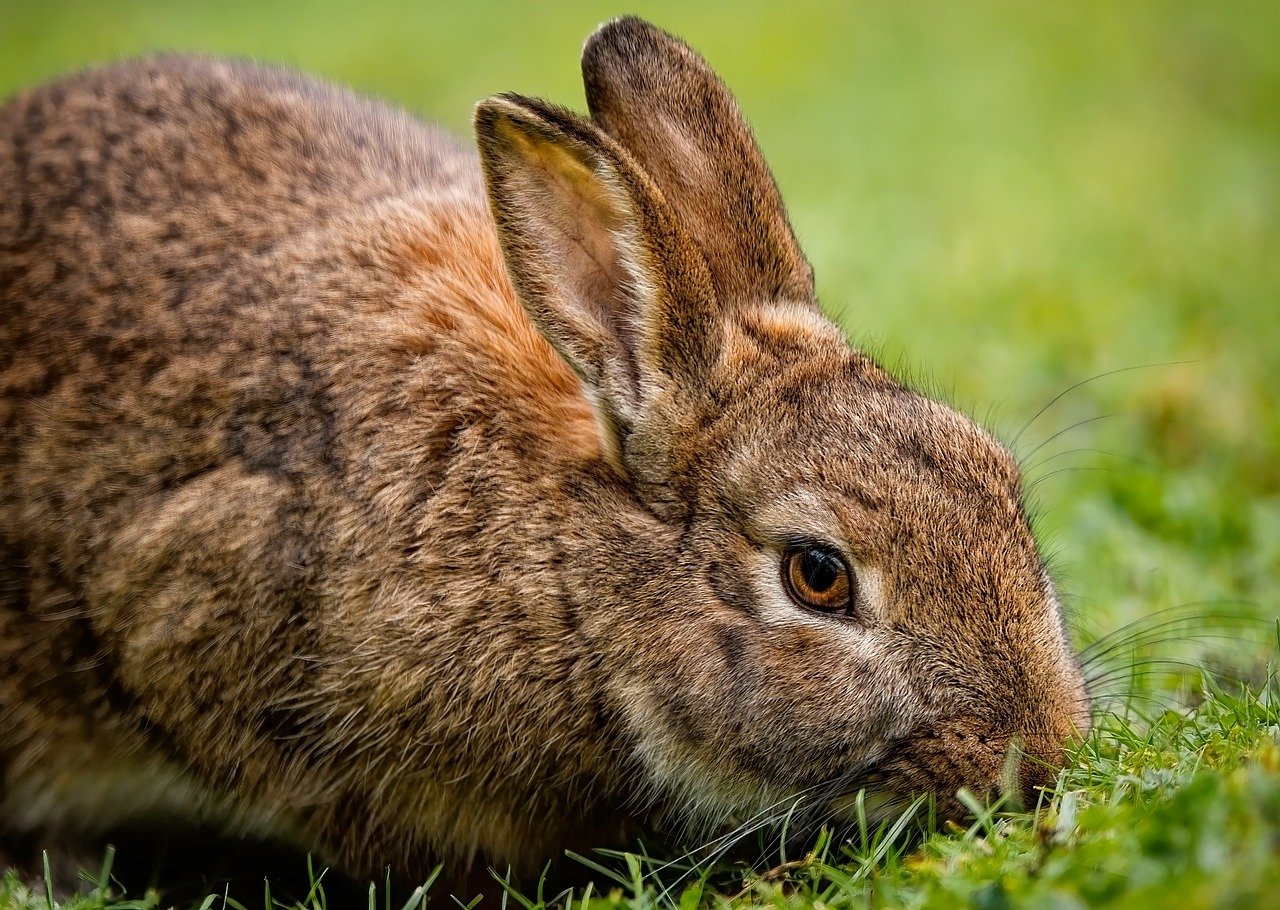
Life Stage Nutrition
When it comes to our furry friends, one size definitely does not fit all, especially regarding their nutritional needs. Just like humans, pets go through different life stages, each requiring a unique approach to their diet. Think of it as a tailored suit versus an off-the-rack outfit; a customized diet can make all the difference in your pet's health and longevity. For instance, the dietary requirements of a playful puppy are worlds apart from those of a wise old dog. Let's dive into the specifics of how nutrition varies across these life stages and why it’s essential for maintaining optimal health.
Starting with puppies and kittens, these little bundles of energy need a diet rich in proteins and fats to support their rapid growth and development. Their bodies are like sponges, soaking up nutrients to fuel their playful antics and build strong muscles and bones. A balanced diet for young pets typically includes higher levels of essential amino acids, fatty acids, and vitamins. For example, a puppy's food should feature ingredients like chicken, fish oil, and a variety of fruits and vegetables to ensure they get everything they need to thrive. This stage of life is crucial; inadequate nutrition can lead to developmental issues that may haunt them for years to come.
As pets transition into adulthood, their nutritional needs shift. Adult pets require a balanced diet that maintains their health without promoting excessive weight gain. Think of it as fine-tuning an engine; you want to keep things running smoothly without overloading it. A good adult diet typically focuses on maintaining lean muscle mass while providing enough energy for daily activities. This is where you’ll want to look for foods that list whole meats and wholesome grains among the first ingredients. It’s also important to monitor their weight and adjust their food intake accordingly, as obesity can lead to serious health issues.
Now, let's not forget about our beloved senior pets. As animals age, their metabolism slows down and their bodies may become less efficient at processing certain nutrients. This is where a shift towards a diet that supports joint health, digestion, and overall vitality becomes essential. Senior diets often include added glucosamine for joint support, as well as higher fiber content to aid digestion. Additionally, reducing caloric intake can help prevent obesity, which can be a significant concern for older pets. Regular vet check-ups become increasingly important during this stage to ensure that any dietary adjustments are made based on their health status.
To summarize, here’s a quick look at the nutritional needs across different life stages:
| Life Stage | Nutritional Focus |
|---|---|
| Puppies and Kittens | High in proteins and fats for growth |
| Adult Pets | Balanced diet for maintenance and energy |
| Senior Pets | Joint support, higher fiber, and reduced calories |
In conclusion, understanding the specific dietary needs of your pet at each life stage is crucial for promoting a long, healthy life. Just as you wouldn’t wear the same outfit for every occasion, your pet’s diet should evolve as they grow. By paying attention to their nutritional needs, you can help ensure that they not only live longer but also enjoy a higher quality of life.
- What should I feed my puppy? Puppies need a diet rich in proteins and fats to support their rapid growth. Look for high-quality commercial puppy food or consult your vet for homemade options.
- How do I know if my adult pet is overweight? A simple way to check is to feel your pet's ribs; you should be able to feel them without excess fat covering. If you can’t, it may be time to adjust their diet.
- What should I consider for my senior pet's diet? Focus on foods that support joint health, are high in fiber, and lower in calories to help maintain a healthy weight.
Nutritional Needs of Senior Pets
As our beloved pets age, their nutritional requirements evolve significantly. Just like humans, senior pets experience changes in metabolism, activity levels, and overall health. It's essential to recognize these shifts and adapt their diets accordingly to ensure they maintain a high quality of life. Think of it as fine-tuning a classic car; you want to keep it running smoothly for as long as possible!
One of the most critical aspects of senior pet nutrition is the balance of proteins, fats, and carbohydrates. Older pets often require a diet that is lower in calories but rich in high-quality protein to help maintain muscle mass. This is crucial because, as pets age, they may lose muscle tone and strength. A diet that includes lean meats, fish, and eggs can provide the necessary proteins while keeping the calorie count in check.
In addition to protein, senior pets need a careful balance of fats. Healthy fats, such as omega-3 and omega-6 fatty acids, can help reduce inflammation and support joint health, which is particularly important for older pets who may suffer from arthritis or other joint issues. Incorporating sources like fish oil or flaxseed oil can be beneficial in this regard.
Moreover, fiber plays a crucial role in senior pet diets. As pets age, they may experience digestive issues, and a diet high in fiber can help promote healthy digestion. Ingredients like pumpkin, sweet potatoes, and brown rice can be excellent additions to their meals. However, moderation is key; too much fiber can lead to other digestive problems.
Vitamins and minerals are also vital for senior pets. Antioxidants like vitamin E and vitamin C can help combat oxidative stress, which increases with age. Additionally, minerals such as calcium and phosphorus are essential for maintaining strong bones and teeth. It's worth noting that senior pets may also have specific needs for certain supplements, such as glucosamine and chondroitin, which can support joint health and mobility.
To sum it all up, here’s a quick overview of the key nutritional components for senior pets:
| Nutrient | Importance | Sources |
|---|---|---|
| Protein | Maintains muscle mass | Lean meats, fish, eggs |
| Healthy Fats | Supports joint health | Fish oil, flaxseed oil |
| Fiber | Aids digestion | Pumpkin, sweet potatoes, brown rice |
| Vitamins & Minerals | Boosts overall health | Fruits, vegetables, supplements |
Finally, it’s essential to consult with your veterinarian when making dietary changes for your senior pet. They can provide tailored advice based on your pet’s specific health conditions and nutritional needs. Remember, just as we need to adapt our diets as we age, our furry friends do too. A well-balanced diet can significantly enhance their quality of life and longevity.
- What should I look for in senior pet food? Look for high-quality protein sources, balanced fats, and added vitamins and minerals tailored for older pets.
- Can I feed my senior pet homemade meals? Yes, but ensure that the meals are balanced and meet their specific nutritional needs. Consulting a vet is advisable.
- How can I tell if my senior pet is getting the right nutrition? Regular vet check-ups can help monitor your pet's health, along with observing their energy levels, weight, and coat condition.
Puppy and Kitten Nutrition
Proper nutrition during the early stages of life is absolutely crucial for puppies and kittens. Just like humans, these adorable little furballs require a balanced diet to fuel their growth and development. Imagine trying to build a sturdy house without a solid foundation; it just won’t stand the test of time. Similarly, a well-balanced diet lays the groundwork for a pet’s lifelong health and vitality.
So, what does this balanced diet look like for our young companions? First and foremost, protein is essential. It’s the building block of their muscles, skin, and fur. Puppies and kittens need a higher protein content in their food compared to adult pets because they are growing rapidly. Look for high-quality sources of protein such as chicken, beef, or fish in their food. A good rule of thumb is to ensure that protein is one of the first ingredients listed on the label.
Next up is fat. Yes, you heard that right! Healthy fats are vital for energy and help support the development of their brain and nervous system. Omega-3 and Omega-6 fatty acids, which can be found in fish oil or flaxseed, are particularly beneficial. These fats not only promote a shiny coat but also contribute to overall well-being.
Carbohydrates often get a bad rap, but they play an important role in providing energy. Whole grains like brown rice or oats can be great sources of carbohydrates, but it’s crucial to ensure that they are easily digestible. Puppies and kittens have sensitive tummies, so avoiding fillers and opting for whole ingredients can make a world of difference.
Now, let’s not forget about vitamins and minerals. These tiny powerhouses support various bodily functions and are essential for growth. Calcium and phosphorus, for example, are crucial for developing strong bones and teeth. A lack of these minerals can lead to serious health issues down the line. Therefore, a well-rounded diet that includes fruits and vegetables can help provide these necessary nutrients.
When it comes to feeding schedules, it’s generally recommended to feed puppies and kittens multiple small meals throughout the day rather than one or two large ones. This approach helps to keep their energy levels stable and supports their metabolism. As they grow, you can gradually transition to fewer meals per day.
Lastly, hydration is key! Always ensure that your young pets have access to fresh, clean water. Dehydration can be detrimental, especially for growing animals. Think of water as the oil that keeps the engine running smoothly; without it, everything can grind to a halt.
In summary, puppy and kitten nutrition is not just about filling their bowls; it’s about setting them up for a long, healthy life. By providing them with a balanced diet rich in proteins, fats, carbohydrates, vitamins, and minerals, you are investing in their future. Remember, you’re not just feeding a pet; you’re nurturing a companion who will bring joy and love into your life for years to come.
- How often should I feed my puppy or kitten? It's best to feed them multiple small meals throughout the day. Puppies typically require three to four meals, while kittens can have four to six meals daily.
- What should I look for in pet food? Look for high-quality protein sources as the first ingredient, along with essential fats, carbohydrates, vitamins, and minerals.
- Can I feed my puppy or kitten homemade food? Yes, but it’s crucial to ensure that the homemade diet is balanced and meets their nutritional needs. Consult with a veterinarian for guidance.
- How do I know if my pet is getting enough nutrients? Regular veterinary check-ups can help assess your pet’s health and dietary needs. Signs of nutritional deficiencies can include poor coat condition, lethargy, and developmental issues.
Frequently Asked Questions
- What are the essential nutrients my pet needs for a long and healthy life?
Pets require a balanced diet that includes proteins, fats, carbohydrates, vitamins, and minerals. Each nutrient plays a vital role in maintaining overall health, supporting growth, and ensuring longevity. For instance, proteins are crucial for muscle development, while vitamins help boost the immune system.
- Is homemade pet food better than commercial pet food?
It depends on various factors. Homemade diets can be tailored to meet your pet's specific health needs and preferences, potentially leading to better health outcomes. However, commercial pet foods are formulated to meet nutritional standards and can be more convenient. It's essential to consult with a vet to determine the best option for your pet.
- How can I tell if the commercial pet food I buy is of high quality?
Look for products that list high-quality ingredients at the top of the ingredient list, such as real meat or whole grains. Additionally, check for certifications from reputable organizations and avoid foods with artificial additives or fillers. Reading labels carefully can help you make informed choices for your pet's diet.
- What nutritional changes should I make for my senior pet?
As pets age, their metabolism slows down, and they may require fewer calories but more fiber to aid digestion. It's also important to focus on joint health and incorporate ingredients that support cognitive function. Always consult with your veterinarian for personalized dietary recommendations for your senior pet.
- What should I feed my puppy or kitten to ensure proper growth?
Puppies and kittens need a diet rich in proteins and fats to support their rapid growth. Look for specially formulated puppy or kitten food that meets their developmental needs. Ensure that the food is designed for their specific life stage to provide balanced nutrition for healthy growth.

